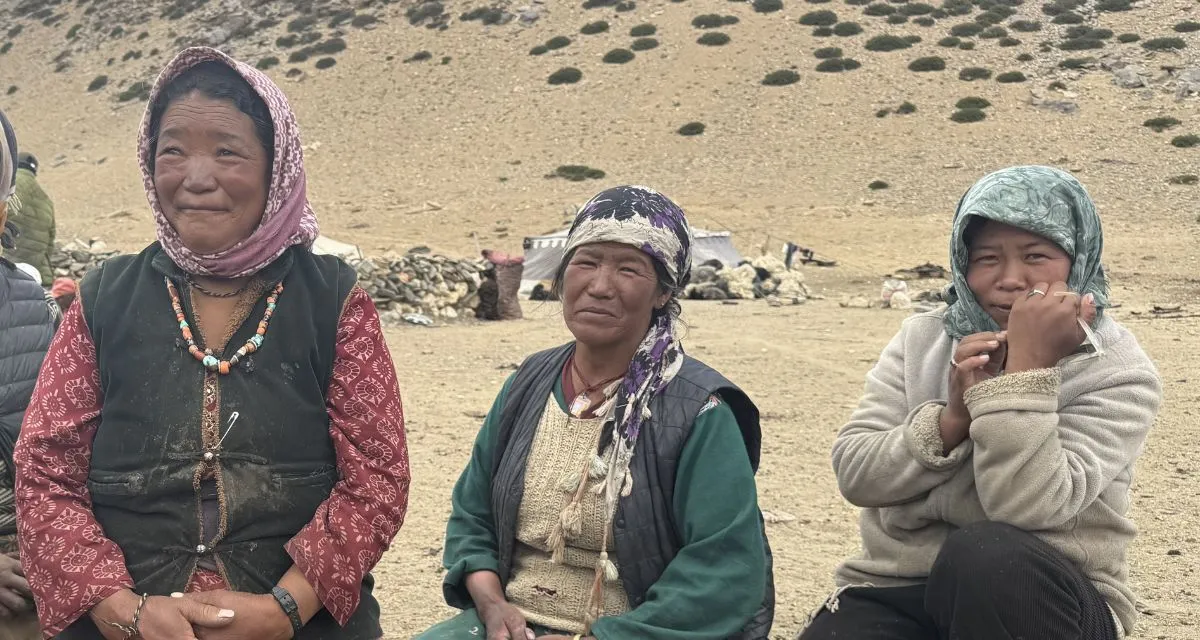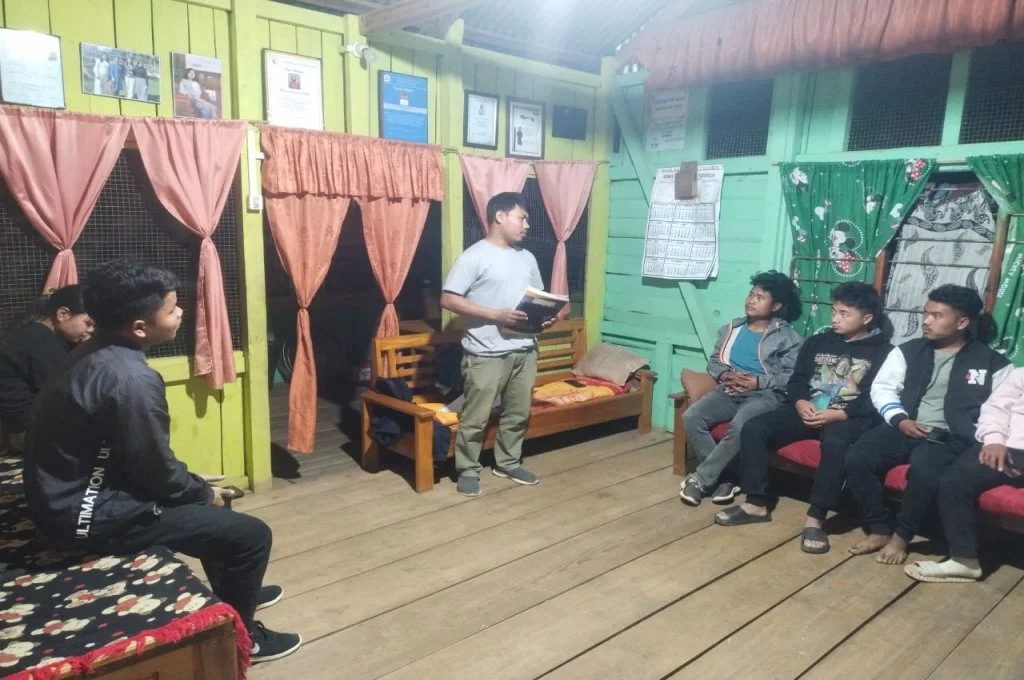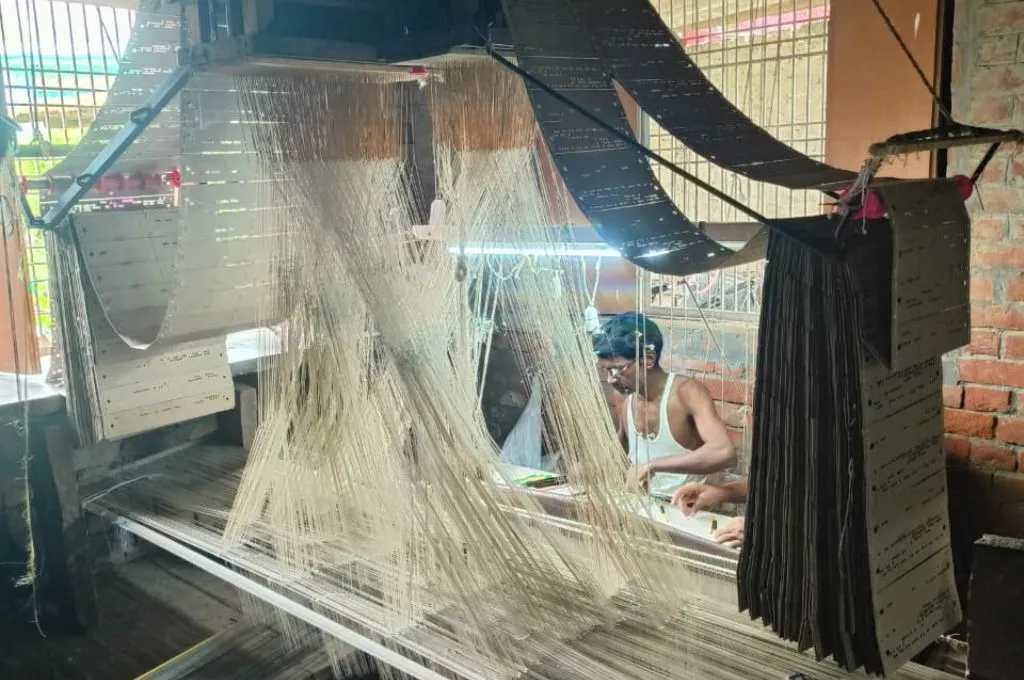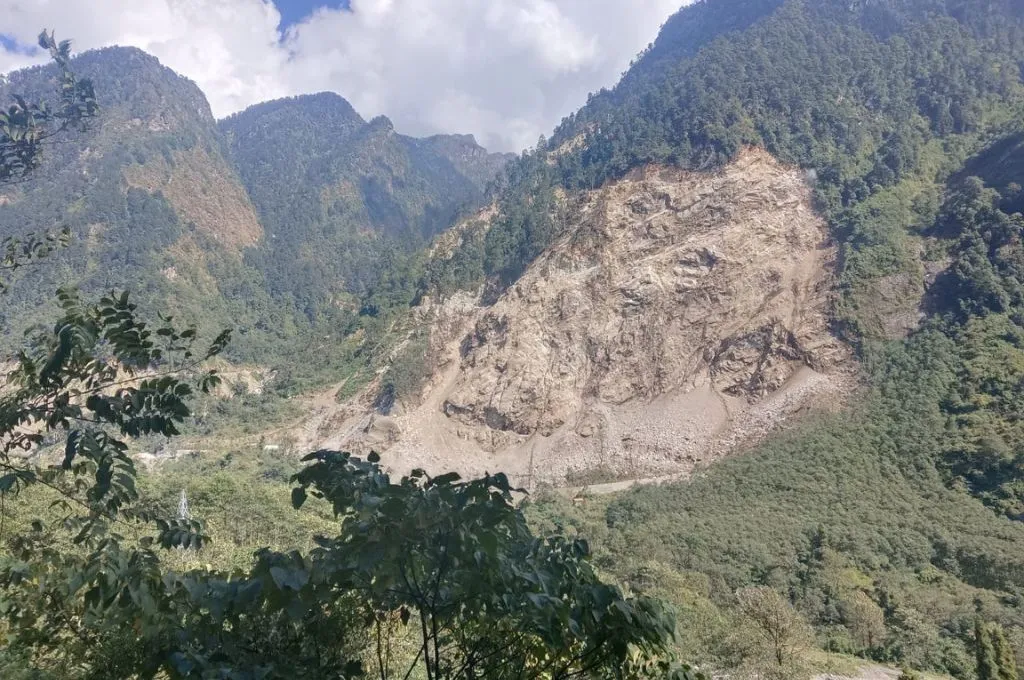READ THIS ARTICLE IN
Rising heat puts broilers on the boil in Jharkhand
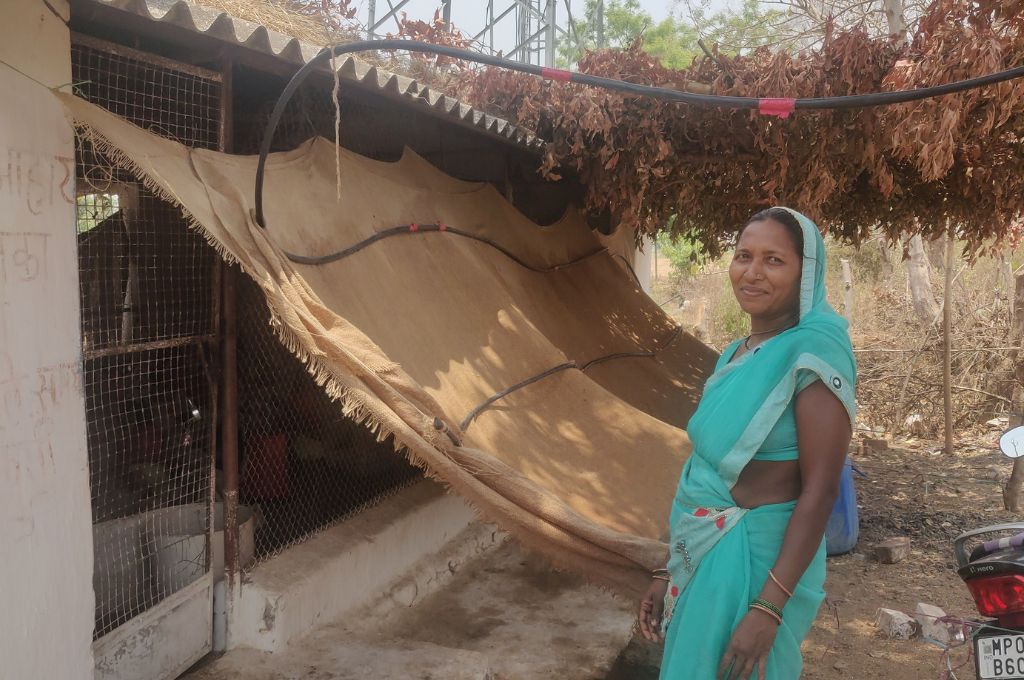
The temperature in Jharkhand’s Gumla district these past few summers has been 40–42 degrees Celsius. This is not good for broilers, or chicken raised for meat production. The ideal temperature for broilers is 25 degrees Celsius. Big farms use foggers and coolers to keep temperatures low and maintain the health of their poultry. But small poultry farmers, with 500–600 broilers, can’t afford these technologies. They are not only expensive to buy but also costly to run, as they consume a lot of electricity.
At the all-women Gumla Grameen Poultry SS Cooperative Society Limited, members are informed about several measures that can help in keeping their sheds cool. These include placing puhal (straw) or gunny bags on the asbestos roof and walls of the shed and sprinkling them with water two to three times a day. The problem is that the straw flies away if it isn’t held down. Water is also sprinkled on the birds and on the floor of the shed to cool the interiors. But these measures manage to reduce the temperature by only 2–3 degrees.
As the heat rises, more broilers die if their sheds are not kept cool. Approximately 5–7 percent of the poultry on a farm die each summer. Earlier the mortality rate was 1–2 percent. There are other problems too: Because it’s too hot to eat, the weight of the broilers drops. The average winter weight of 2 kg reduces to 1.8 kg. Lower weight means lower income. While individual poultry farmers previously earned INR 50,000 a year (as the grower charge), we now earn INR 40,000. Hotter sheds prevent us from raising more broilers in a batch. Air-conditioned sheds can hold 800–1,000 broilers (one bird per sq ft), but those without cooling can only hold 600 (one bird in 1.25 sq ft) if overcrowding and heat stress are to be avoided.
It also takes longer to raise a batch of poultry to the desired weight because the weight gain is slow. This again leads to a drop in income. Earlier we had six to seven cycles of breeding, and now we average five a year. Each cycle takes approximately 40 days. After each cycle, the shed must be cleaned, whitewashed, and rested for 15–20 days. The more time it takes to raise one batch, the more food and water must be fed to the birds, which again costs extra time, money, and effort. Drinking water bowls must be refilled four to five times a day instead of the usual three. This results in extra work for women, some of whom travel long distances to draw water. And then the water must be mixed with glucose to rehydrate the birds.
Some of us have worked with SELCO Foundation on making the sheds cooler. We have installed solar exhaust fans and lights and coated our roofs with choona (limestone). But, because the exhaust fans run all day, the light bulbs can’t run (on solar) at night. However, these measures have generally helped. Only 20 out of 600 chickens on my (Sarita’s) farm have died this time. And they haven’t lost much weight either. Another recent initiative includes replacing asbestos roofs with ‘cool roofs’, which not only help in reducing summer stress but also trap heat during the winter.
Sarita Devi advises the board at the all-women Gumla Grameen Poultry SS Cooperative Society Limited. Akhilesh Kumar Verma is a manager at Jharkhand Women’s Self-Supporting Poultry Cooperative Federation Limited.
—
Know more: Read this article to learn about the other ways in which climate change is affecting rural livelihoods.
Do more: Contact the authors at jwspcfl@nspdt.org to learn more about and support their work.
